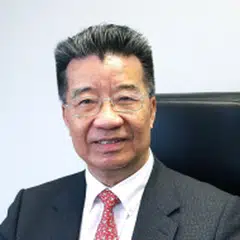Hong Kong's left turn could hit its financial centre status
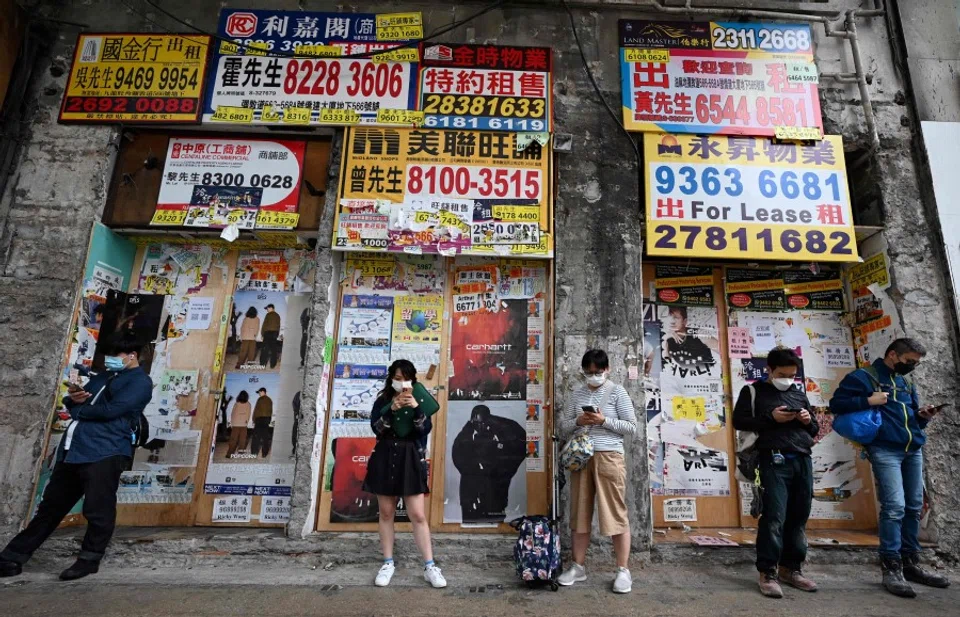
The report of the 20th Party Congress of the Chinese Communist Party (CCP) says that "the policy of One Country, Two Systems is a great innovation of socialism with Chinese characteristics. It has proven to be the best institutional arrangement for ensuring sustained prosperity and stability in Hong Kong and Macao after their return to the motherland", and hence should be a long-term mission.
But whether "one country, two systems" can be accurately and firmly implemented in Hong Kong will depend on whether there will be policy adjustments to address seven deep-rooted contradictions and correct the error of leaning too far left and disregarding the majority (一左二窄). Otherwise, the confidence of Hong Kongers and the international community would take a big hit.
Eliminating private property
The first contradiction is between the Marxist policy of eliminating private property and "one country, two systems". The 20th Party Congress report states: "Marxism is the fundamental guiding ideology upon which our Party and our country are founded and thrive."
Meanwhile, the Communist Manifesto by Karl Marx and Friedrich Engels says, "In this sense, the theory of the Communists may be summed up in the single sentence: Abolition of private property."
It is worth watching how Beijing addresses the problem and removes investors' concerns, as only when this issue is resolved can Hong Kong move forward steadily.
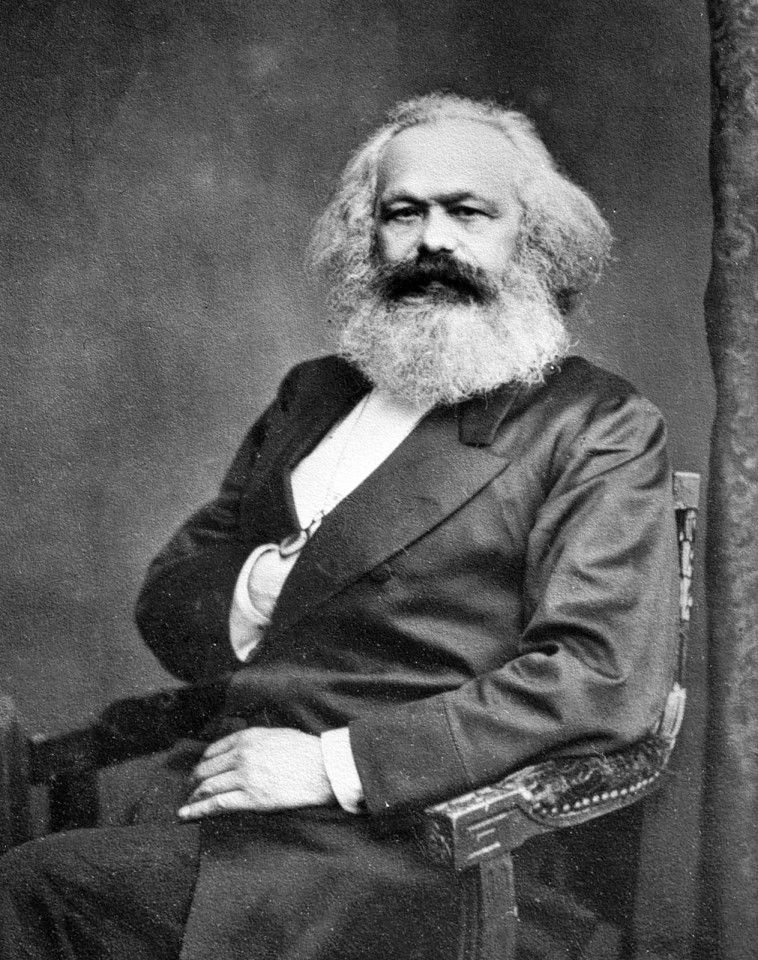
If China is to break away from the tussle between socialism and capitalism - as advocated by Deng Xiaoping - and engage in an unprecedented push for Marxism as the guiding ideology, Hong Kong's businesses and external investors would face the same concerns as the private sector in mainland China - how would they be at ease with "one country, two systems"?
It is worth watching how Beijing addresses the problem and removes investors' concerns, as only when this issue is resolved can Hong Kong move forward steadily.
Isn't it counterintuitive to see them as enemies and competitors, when they are in fact the main source of Hong Kong's international financiers, international trade partners and international transport clients?
Attracting foreign investments
Second, the contradiction between the "fighting spirit" and attracting foreign investments to maintain Hong Kong's status as a centre for international finance, trade and transport.
The 20th Party Congress report emphasises the "fighting spirit" several times, and in mid-July, when the head of the Hong Kong and Macau Affairs Office Xia Baolong discussed "Hong Kong should be governed by patriots", he said that Hong Kong will firmly fight against external forces from the US and the West.
Isn't it counterintuitive to see them as enemies and competitors, when they are in fact the main source of Hong Kong's international financiers, international trade partners and international transport clients? This would also go against the aim of cementing Hong Kong's status as a centre for international finance, trade and transport.
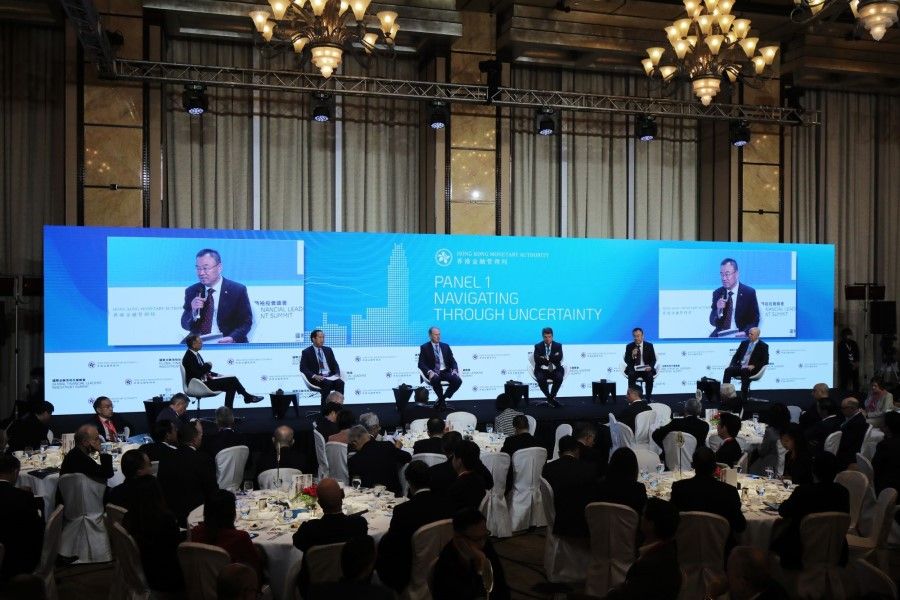
Hong Kong's "one country, two systems" situation is unique, and the philosophy of tussling is not conducive to attracting foreign investments. The success of any international financial centre depends on its policies being comprehensively aimed at attracting external investments.
Affirmation and approval of the capitalist world
Third, the Chinese government committed to "one country, two systems" when it signed the Sino-British Joint Declaration and registered it with the United Nations (UN); however, China has made contradictory statements in recent years that the declaration is a historical document that no longer has any practical significance.
For Hong Kong to retain its capitalist system and hold on to its core values of freedom and rule of law; maintain its status as a free port and independent tariff zone; and continue to receive concessions from developed countries, would depend on the affirmation and approval of the capitalist world.
China's unilateral declaration that the document is of no practical significance would lead the international community to believe that Hong Kong's "one country, two systems" exists only in name, or even prompt the US to do the same to declare that the Three Communiques are "out of date and not in effect".
Hong Kong people administering Hong Kong
Fourth, the "overall jurisdiction" exercised by the central government contradicts the principles of "Hong Kong people administering Hong Kong" and "a high degree of autonomy" stipulated in the Sino-British Joint Declaration and the Hong Kong Basic Law.
... "overall jurisdiction" goes beyond foreign affairs and defence, to also oversee the economy, society, culture, education and public security.
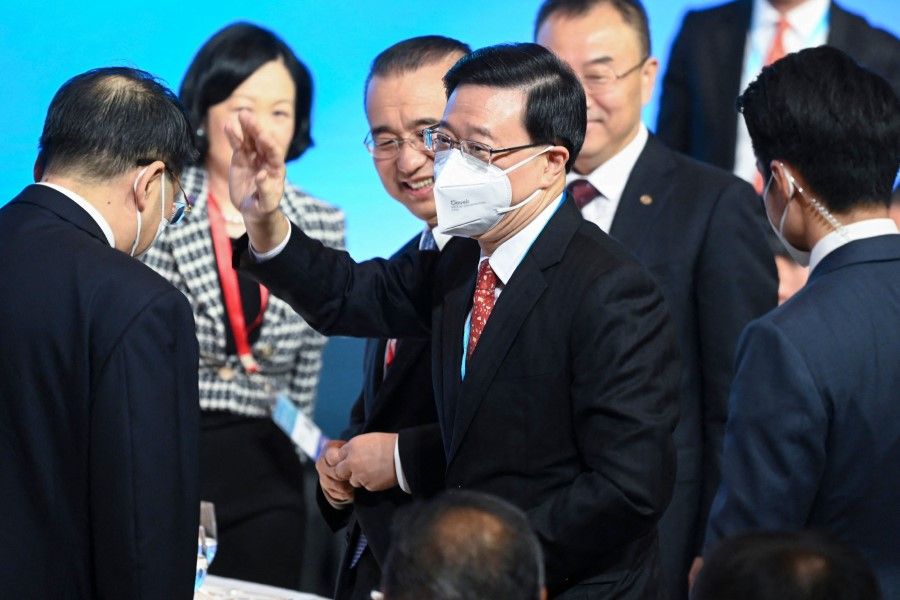
The Basic Law states that Hong Kong will have "executive, legislative and independent judicial power", while the central government will be responsible for foreign affairs and defence.
However, "overall jurisdiction" goes beyond foreign affairs and defence, to also oversee the economy, society, culture, education and public security. Where is the space for "Hong Kong people administering Hong Kong" and "a high degree of autonomy"?
Enacting laws on national security issues
Fifth, the 20th Party Congress report emphasised that "order has been restored in Hong Kong, marking a major turn for the better in the region"; however, the Fugitive Offenders and Mutual Legal Assistance in Criminal Matters Legislation (Amendment) Bill 2019 that the Hong Kong government tried to pass, along with the Hong Kong national security law that was criticised as "vague and overly broad" by the UN Human Rights Council (UNHRC), are in fact contradictory to Articles 8 and 11 in the Basic Law.
The two articles stipulate that "the common law... shall be maintained" and "the systems and policies practised in the Hong Kong Special Administrative Region... shall be based on the provisions of this Law" respectively.
Additionally, according to Article 23 of the Basic Law, Hong Kong shall "enact laws on its own" on matters concerning national security. Meanwhile, based on Article 18 of the Basic Law, since Beijing has never declared "a state of war" or "a state of emergency" in Hong Kong, the Standing Committee of the National People's Congress (NPC) should not introduce such national laws under Annex III of the Basic Law.
Yet, the worst consequence is giving investors the impression that Hong Kong has lost the right of "freedom from fear" and that the city's liberty and rule of law have eroded.
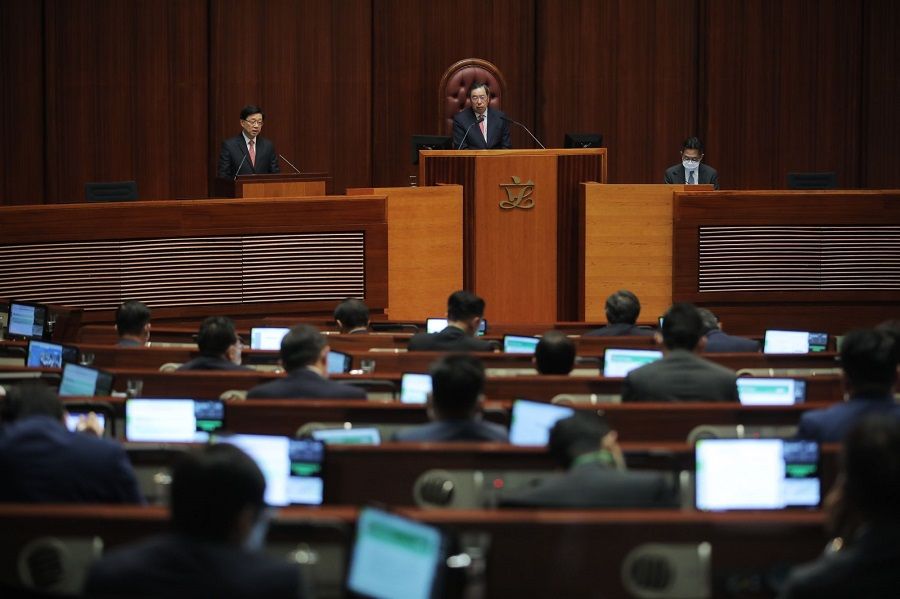
Besides, the Hong Kong national security law is not a "national law" in itself and should not be listed in Annex III along with other national laws such as the "Law of the People's Republic of China on the National Flag" and the "Law of the People's Republic of China on the National Anthem".
Hong Kong is governed by the rule of law and seeks the organic unity of fair goals and procedural justice. It also prescribes to the common law system and adopts the presumption of innocence, judicial independence and the practice of trial by jury. But the implementation of the Hong Kong national security law has deviated from standard practice, resulting in international sanctions and criticisms from the UNHRC.
Yet, the worst consequence is giving investors the impression that Hong Kong has lost the right of "freedom from fear" and that the city's liberty and rule of law have eroded. Thus, it is necessary for Hong Kong to return to the constitutional track of enacting its own laws when it involves national security issues, and use collective wisdom to properly solve the problem.
Hong Kong's electoral system
Sixth, the NPC's decision to improve Hong Kong's electoral system is contradictory to the Basic Law's principle of "gradual and orderly progress" with the ultimate aim of "universal suffrage", and the "three-step process" laid out in Annex I and II.
While it is indisputable that the central government's concern for national security should be ensured at the constitutional level, the Hong Kong people's right to "double universal suffrage" in selecting Hong Kong's chief executive and legislative council should also be upheld.
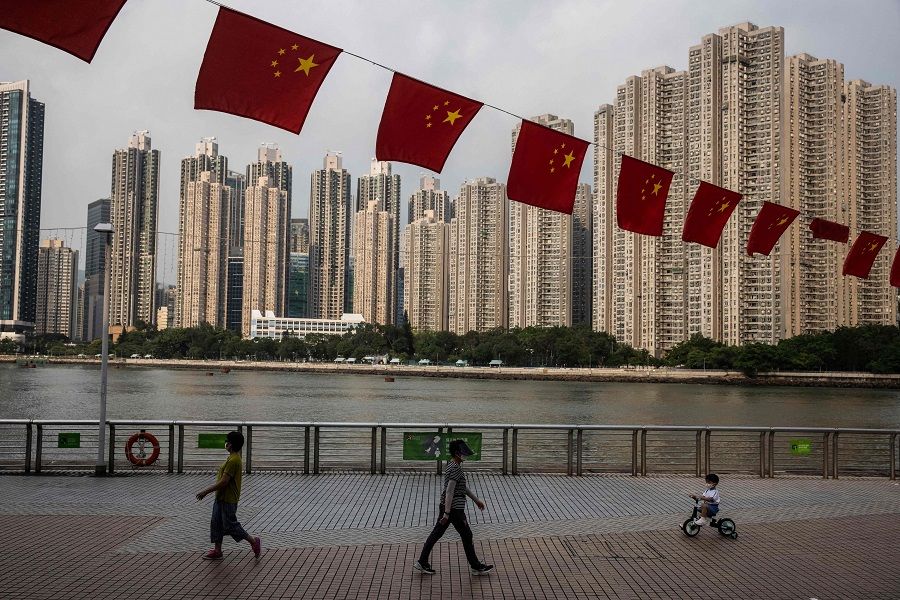
However, after the NPC's decision to improve Hong Kong's electoral system was adopted into the amended Annex I and Annex II of the Basic Law on 30 March 2021, the elections of Hong Kong's chief executive, legislative council and election committee were no longer universal and fair, but reminiscent of the Bolsheviks' January 1918 "All power to the Soviets", whereby only "patriots" could be rulers.
Hong Kong political representatives who usually obtained 52% to 62% of votes in geographical constituency elections were removed from office in one fell swoop, dealing a big blow to "one country, two systems".
But as a capitalist society and an international financial centre, Hong Kong's quarantine policies and movement restrictions should be aligned with those of the developed capitalist countries.
Dynamic zero-Covid policy
Seventh, the 20th Party Congress reiterated that China's dynamic zero-Covid policy will be maintained. If Hong Kong follows the mainland's quarantine policy for inbound travellers, it would contradict international trends and standards. Indeed, the mainland has politicised the dynamic zero-Covid policy and made it an "institutional battle".
But as a capitalist society and an international financial centre, Hong Kong's quarantine policies and movement restrictions should be aligned with those of the developed capitalist countries. Furthermore, the practical needs of major clients such as international financial stakeholders should be taken into consideration, instead of blindly following the mainland's approach. Otherwise, Hong Kong could lose its shine as an international financial centre.
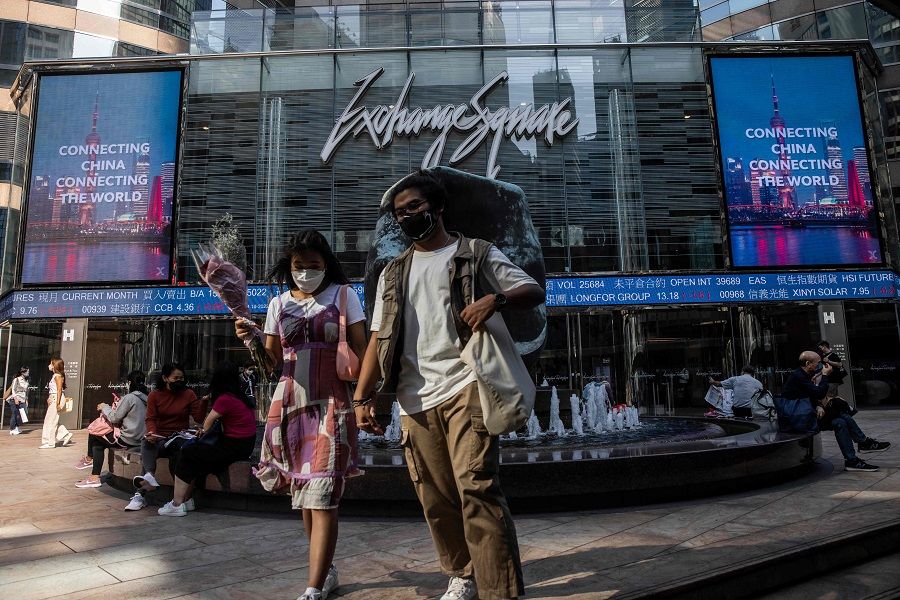
While the seven dilemmas mentioned above are Hong Kong's issues, they are fundamentally due to the problem of leaning too far left and disregarding the majority, which resulted in a loss of confidence in the prospects of "one country, two systems" and an outflow of talent and capital due to emigration.
On the contrary, Singapore's policies are aimed at attracting foreign investment - Hong Kong's downward spiral could lift Singapore up, and the latter could replace Hong Kong's position to create a "New York-London-Singapore ecumenopolis". That would indeed be Hongkongers' nightmare!
Over a century ago, the UK was the most powerful country in the world mostly because London was the largest international financial centre. Today, New York has taken over to make the US the most powerful country in the world. Since the 20th Party Congress wants to make China a great modern socialist country by the middle of the 21st century, the weakening or destruction of Hong Kong's status as an international financial centre would indeed thwart the achievement of the great rejuvenation of the Chinese nation.
This article was first published in Lianhe Zaobao as "守护香港一国两制 须解决七大矛盾".
Related: What's new in Xi Jinping's 20th Party Congress report | Xi's model of Chinese modernisation shaking up China and the world | One country, two systems: Can Hong Kong hold on to its characteristics? | Overhaul of Hong Kong's electoral system: Is it still 'one country, two systems'? | 'New Hong Kongers' entering politics must act in the interests of all Hong Kongers
